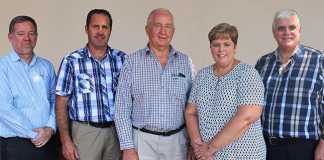The CGCSA recently announced that an audit document, based on Pick ‘n Pay’s audit document, had been adopted as the South African Food Safety Audit (Safsa) criteria. Managed by the CGCSA’s Food Safety Initiative (FSI), and headed up by Dr Lucia Anelich, the CGCSA said a single, harmonised food safety audit would create consistency in the industry.
While the finer details have yet to be agreed upon, Massmart, Metcash, Pick ‘n Pay, Shoprite Checkers and Spar have committed full participation. Woolworths has committed participation for branded goods only.
Auditing companies will have to be accredited to audit food suppliers, retailers and wholesalers according to this standard, and suppliers will apparently have a choice of accredited food-safety auditors.
Although the idea has been met with a mainly favourable response, the CGCSA has been criticised for taking a flawed approach. CEO of consulting, training and auditing firm IQuad Integrated Management Systems Mark Bodley said there appeared to be an attempt to railroad the process for commercial reasons.
“There’s a large financial incentive in the amount of business a single inspectorate (or their affiliates and associates) would derive from this imposition of periodic audits and inspections by the auditing/inspection company Southern African Food Safety Inspection Service (Safsis), also known as Food Assess CC,” he said.
“If all audits or inspections are assigned by the likes of CGCSA, this is a monopoly. A monopoly of standards should not be handed to any one company or group of companies involving the same individuals,” Bodley said.
But Safsis CEO Johan Marais said they stood to lose market share to other accreditation agencies in the Western Cape under the single audit system. He said that about two years ago, Safsis started reducing its supplier auditing activities and most audits were currently carried out by Food Assess CC, an independent business.
An anonymous agricultural producer/marketer said that in principle, the single audit was to be welcomed, but expressed concern about the way the Safsa audit/inspection criteria and scoring system had been constructed.
“The SA audit is a negative marking system and excludes strategic and long-term sustainable considerations. The ISO rating standard is very developmental. You present a strategic plan and long-term vision, and are rated each year to see if you’re making progress.”
CGCSA has claimed that the single audit will solve the issue of suppliers undergoing different audits to satisfy the food-safety criteria of different retailers and wholesalers, and would save time and costs.
But it’s unclear as to whether producers who have already achieved international accreditation will have to gain Safsa accreditation.
A KwaZulu-Natal producer who gained international certification has been told by a major retailer that he’ll have to undergo one additional, unannounced Safsa audit at his own expense.
However, managing director of accreditation organisation NSF-CMi Africa Wouter Conradie said that according to his understanding, Safsa was not meant to replace internationally accepted standards.
“We were told by the Food Safety Initiative that producers and packhouses with accreditation like HACCP or BRC won’t be affected by this new single standard, because Safsa is at a lower level.”












